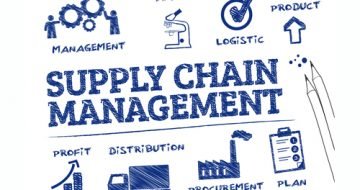Diploma in Procurement and Supply Chain Management
Course Overview:
The Diploma in Procurement and Supply Chain Management is a comprehensive six-month program designed to equip students with the knowledge and skills required to effectively manage procurement processes and optimize supply chain operations. The course covers essential topics related to sourcing, purchasing, logistics, inventory management, and supplier relationships. Through a combination of theoretical learning, practical exercises, and case studies, students will gain insights into best practices in procurement and supply chain management. The course culminates with a final exam to assess students’ understanding of procurement and supply chain principles and their ability to apply them to real-world scenarios.
Course Objectives:
- Develop a comprehensive understanding of procurement principles and practices.
- Explore various supply chain management concepts, including sourcing, purchasing, and logistics.
- Familiarize students with inventory management techniques to optimize inventory levels and minimize costs.
- Build essential negotiation skills for effective supplier relationship management.
- Learn about sustainable and ethical procurement practices in the context of global supply chains.
- Enhance analytical and problem-solving skills to address procurement and supply chain challenges.
Module 1: Introduction to Procurement and Supply Chain Management
– Understanding the role and importance of procurement and supply chain management
– Key principles of procurement and supply chain integration
– Procurement strategies and their impact on supply chain performance
– Ethical considerations in procurement and supply chain practices
Module 2: Strategic Sourcing and Supplier Management
– Developing sourcing strategies and supplier selection criteria
– Supplier relationship management and performance evaluation
– Contract management and negotiations
– Risk management in supplier partnerships
Module 3: Purchasing and Contracting
– Procurement process and procurement cycle
– Request for Proposal (RFP) and Request for Quotation (RFQ)
– Procurement contracts and legal considerations
– Procurement performance metrics and evaluation
Module 4: Logistics and Distribution
– Understanding logistics in supply chain management
– Transportation modes and routing optimization
– Warehouse management and inventory control
– Last-mile delivery and customer service
Module 5: Inventory Management
– Inventory control techniques and inventory optimization
– ABC analysis and Economic Order Quantity (EOQ)
– Just-in-Time (JIT) and Lean inventory principles
– Dealing with excess and obsolete inventory
Module 6: Supply Chain Sustainability and Global Issues
– Sustainable procurement practices and social responsibility
– Environmental considerations in supply chain management
– Addressing challenges in global supply chains
– Supply chain disruptions and risk mitigation strategies
Assignments:
After completing each module, students will be required to undertake practical assignments that apply the concepts learned. These assignments may include developing sourcing strategies, analyzing supplier performance data, conducting inventory management simulations, or negotiating procurement contracts.
Final Exam:
The course concludes with a comprehensive final exam that assesses students’ overall understanding of procurement and supply chain management principles and their ability to apply these principles to real-world situations.
Why Study this Course:
- Growing Demand: With the increasing complexity of supply chains and the global nature of business, there is a high demand for professionals with expertise in procurement and supply chain management.
- Career Opportunities: Studying this course opens up diverse career opportunities in various industries, including manufacturing, retail, logistics, and consulting, among others.
- Cost Optimization: Effective procurement and supply chain management can lead to cost savings and improved operational efficiency for organizations.
- Supply Chain Resilience: By understanding supply chain risks and implementing risk mitigation strategies, professionals can contribute to building more resilient supply chains.
- Global Relevance: Supply chain management has global implications, making it a valuable skill for professionals involved in international trade and business.
Who is this Course for:
- Procurement Professionals: Individuals working in procurement roles who want to enhance their skills and advance their careers in procurement management.
- Supply Chain Managers: Current supply chain managers seeking to broaden their knowledge and adopt best practices in supply chain optimization.
- Graduates and Students: Recent graduates or students interested in pursuing a career in procurement or supply chain management and seeking a comprehensive understanding of the field.
- Operations and Logistics Professionals: Individuals involved in logistics and operations who want to expand their expertise to encompass end-to-end supply chain management.
- Business Owners and Entrepreneurs: Business owners or entrepreneurs who want to optimize their procurement processes and improve supply chain efficiency in their companies.
- Career Changers: Professionals looking to transition into the procurement and supply chain management field from other industries or career paths.
Course duration: 6 months
Regions Targeted: Global
Courses Fees $750

